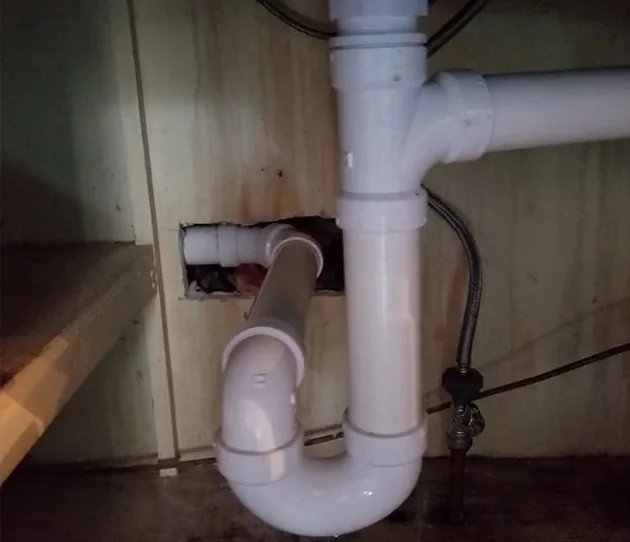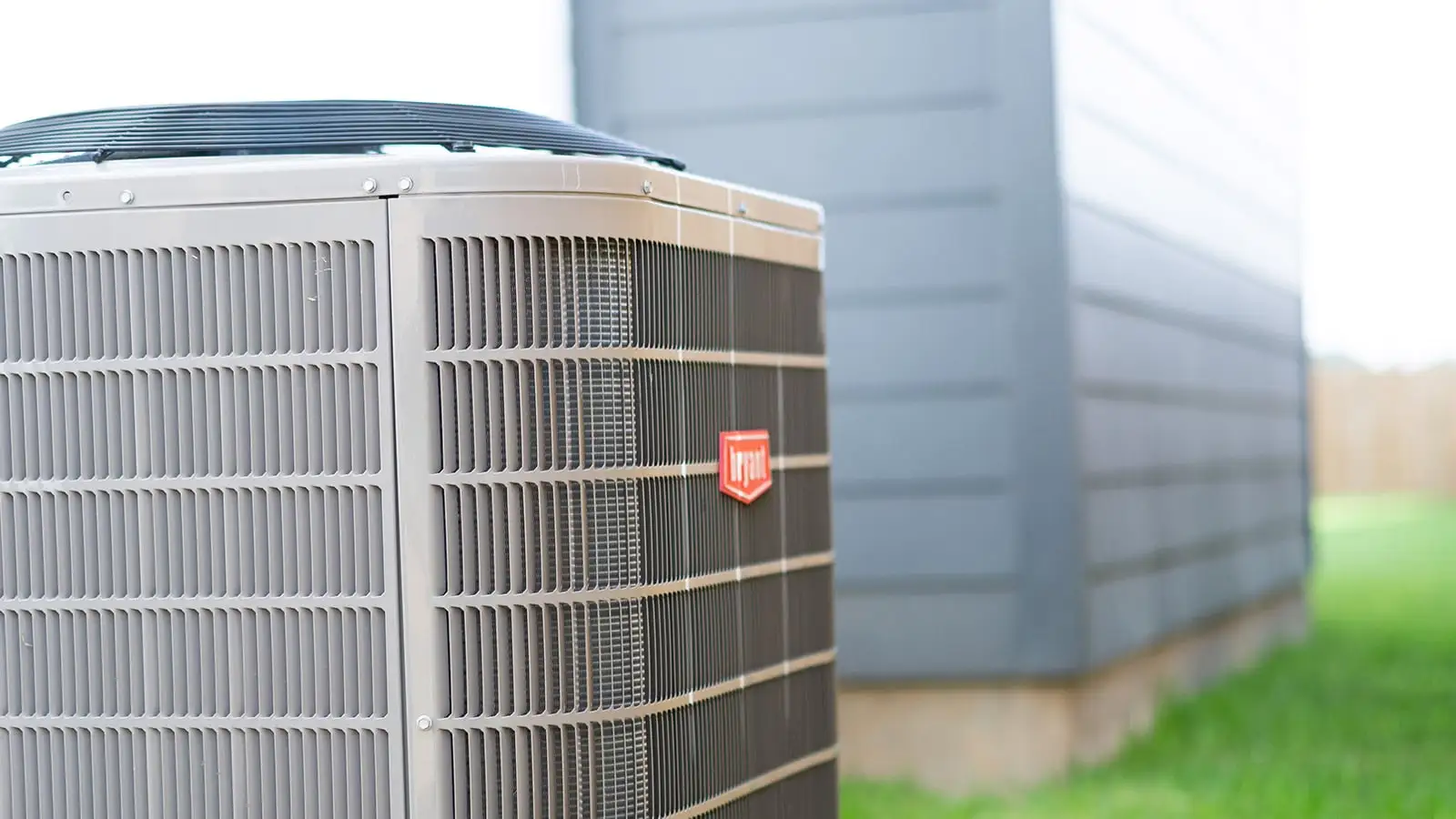Electric Vehicle (EV) Charger Installation Services in Western New York: Empowering Electric Mobility
Electric vehicles (EVs) are revolutionizing the automotive industry, and as their popularity soars, the demand for accessible EV charging infrastructure is on the rise. At Reimer, we specialize in providing top-notch EV charger installation services.
In this guide, we’ll explore the world of EV chargers, the benefits of at-home charging stations, signs of charger repair, and how EV chargers work. Whether you already own an EV or are considering one, understanding the installation process is crucial.
At Reimer, we’re your trusted partner for EV charger installation in Western New York. Our skilled professionals ensure a seamless installation, empowering you to embrace the future of electric mobility.
Join us on this journey as we delve into the world of EV chargers and discover how our services can power your electric vehicle in Western New York. Let’s drive towards a sustainable and convenient future together.
Types of EV Chargers
Level 1 Chargers
Level 1 chargers are the most basic and commonly available EV chargers. They provide a standard 120-volt AC plug that can be easily plugged into a standard household electrical outlet. Level 1 chargers typically come with the electric vehicle and require no additional installation.
Charging Capabilities and Timeframes:
Level 1 chargers deliver charging power between 1.4 to 1.9 kilowatts (kW), which translates to an average charging rate of 4-5 miles of range per hour of charging. However, it is important to note that Level 1 chargers have relatively slower charging speeds compared to other charger types.
Pros and Cons of Level 1 Chargers:
Pros:
- Easy to use and widely available.
- No additional installation costs or requirements.
- Suitable for overnight charging or long durations when the vehicle is not in use.
- Ideal for EV owners with limited charging needs or access to other charging options.
Cons:
- Slow charging speed, especially for vehicles with larger battery capacities.
- Limited range added per hour of charging.
- Not suitable for EV owners with frequent or long-distance driving requirements.
Level 2 Chargers
Level 2 chargers operate on a 240-volt power supply, providing faster charging speeds compared to Level 1 chargers. They require professional installation and are commonly found in public charging stations, workplaces, and residential properties.
Charging Capabilities and Timeframes:
Level 2 chargers have a charging power range between 3.3 to 19.2 kW, offering an average charging rate of 10-60 miles of range per hour of charging, depending on the vehicle and charger capacity. The actual charging speed also depends on the vehicle’s internal charging capabilities.
Pros and Cons of Level 2 Chargers:
Pros:
- Faster charging speeds compared to Level 1 chargers.
- Suitable for residential and commercial installations.
- Allows for convenient overnight charging, replenishing significant range by morning.
- Provides flexibility for daily commuting and regular vehicle usage.
Cons:
- Higher upfront costs for the charger and installation.
- Limited availability in public charging infrastructure.
DC Fast Chargers (Level 3 Chargers)
DC Fast chargers, also known as Level 3 chargers, are designed for rapid charging and are typically found in public charging stations, highway rest areas, and commercial locations.
These chargers use direct current (DC) power to charge the vehicle’s battery, bypassing the vehicle’s onboard charger.
Charging Capabilities and Timeframes:
DC Fast chargers offer a significantly higher charging power, ranging from 25 kW to over 350 kW, depending on the charger’s specifications. Charging times can vary, but they can provide a range of around 60-80 miles in as little as 20-30 minutes, depending on the vehicle’s battery capacity and charging capabilities.
Pros and Cons of DC Fast Chargers:
Pros:
- Extremely fast charging speeds, ideal for long trips and quick top-ups.
- Widely available in public charging networks and along highways.
- Suitable for EV owners who require frequent long-distance travel or quick charging intervals.
- Enables extended driving range with short charging sessions.
Cons:
- Expensive to install and maintain, requiring significant infrastructure investments.
- Limited compatibility with certain electric vehicle models.
- High-power requirements may strain the electrical grid.
- Potential battery degradation if frequently used for rapid charging.
Wireless Charging
Wireless charging, also known as inductive charging, eliminates the need for physical cables by using electromagnetic fields to transfer energy between the charging pad or ground-mounted coil and the vehicle’s receiver pad or coil.
How Wireless Chargers Work:
Wireless chargers use a primary coil in the charging pad and a secondary coil in the vehicle to create an electromagnetic field that transfers power wirelessly. The vehicle must be aligned correctly with the charging pad for efficient charging.
Pros and Cons of Wireless Chargers:
Pros:
- Convenient and hassle-free charging experience without the need for cables or plugs.
- Reduces wear and tear on charging ports.
- Offers potential for automated and integrated charging systems.
- Can be installed in various locations, such as homes, parking lots, and public spaces.
Cons:
- Relatively slower charging speeds compared to Level 2 and DC Fast chargers.
- Higher costs associated with installation and equipment.
- Efficiency loss during power transfer compared to wired charging.
- Limited availability and compatibility with specific electric vehicle models.
Understanding the different types of EV chargers is essential for making informed decisions about the best charging solution for your electric car. Consider your charging needs, available infrastructure, and vehicle specifications to determine the most suitable charger type for your lifestyle.
Benefits of At-Home EV Charging Stations in Western New York
Installing an electric vehicle (EV) charging station at your home brings numerous benefits that enhance your EV ownership experience. Let’s explore the advantages of having an at-home EV charging station:
Convenience and Accessibility:
One of the primary benefits of having an at-home EV charging station is the convenience it offers. With a charging station installed on your property, you have easy access to charging your electric car at any time.
No more trips to public charging stations or waiting in queues. Simply plug in your vehicle when you arrive home, and it will be ready for your next journey.
Cost Savings and Efficiency:
Charging your EV at home can lead to significant cost savings compared to relying solely on public charging stations. Electricity rates for residential charging are typically lower than the cost of gasoline or public charging fees.
Additionally, at-home charging allows you to take advantage of time-of-use rates, charging your vehicle during off-peak hours when electricity costs are lower.
Moreover, at-home charging is highly efficient as it eliminates the energy losses associated with transporting electricity from power plants to charging stations. This translates to a more efficient use of energy and reduced environmental impact.
Customization and Personalization:
When you have an at-home EV charging station, you can customize it to suit your specific needs. You can choose the charging capacity that aligns with your vehicle’s requirements, whether it’s a Level 1 or Level 2 charger.
Additionally, you can select the location and design of the charging station to integrate seamlessly into your home’s aesthetics and parking setup. Personalization options allow you to create a charging experience tailored to your preferences.
Increased Home Value:
Installing an at-home EV charging station can increase the value of your property. As electric cars become more prevalent, having a dedicated charging solution is an attractive feature for potential buyers.
It demonstrates that your home is equipped to accommodate EV owners, making it a desirable option for individuals looking to purchase an electric vehicle or those who already own one.
Environmental Benefits:
Switching to electric vehicles and charging them at home contributes to a cleaner and greener environment. By reducing reliance on fossil fuels, EVs help lower greenhouse gas emissions and improve air quality.
Charging at home allows you to utilize renewable energy sources, such as solar power, further reducing your carbon footprint. Embracing at-home EV charging stations plays a vital role in supporting sustainable transportation and combating climate change.
Overall, the benefits of installing an at-home EV charging station extend beyond convenience and cost savings.
Customization options, increased home value, and environmental advantages make at-home charging an attractive proposition for EV owners.
It’s a reliable and efficient solution that enhances the overall ownership experience and aligns with the transition towards sustainable transportation.
How Do EV Chargers Work?
Understanding the Charging Process:
Electric car chargers facilitate the transfer of electricity from the power source to the vehicle’s battery, replenishing its energy. The charging process typically involves three main stages: connection, AC/DC conversion, and charging.
Connection:
To initiate the charging process, the EV is connected to the charger through a charging cable. The charger is then plugged into a power source, such as a wall outlet or a dedicated charging station.
AC/DC Conversion:
Once connected, the charger converts the alternating current (AC) from the power source into direct current (DC) that can be stored in the vehicle’s battery. This conversion is necessary because most EVs use DC power to operate.
Charging:
During the charging stage, the DC current flows from the charger to the vehicle’s onboard charger, which manages the charging process and controls the flow of electricity into the battery. The battery stores the converted DC power, allowing the vehicle to use it for driving later.
Components of an EV Charger System:
An EV charger system consists of several key components that work together to facilitate the charging process:
Charging Station:
The charging station serves as the physical interface between the power source and the vehicle. It provides the electrical connection, safety features, and communication capabilities required for charging.
Charging Cable:
The charging cable connects the charging station to the EV, allowing the flow of electricity between the two. It is designed to handle high currents and has connectors at both ends for secure and reliable connections.
Onboard Charger:
The onboard charger, located within the vehicle, manages the charging process. It converts the incoming AC power from the charger into DC power suitable for the vehicle’s battery. The onboard charger controls the charging rate, monitors battery status, and ensures safe and efficient charging.
Vehicle Battery:
The battery is where the converted DC power is stored. It is the energy source for the vehicle’s electric motor, powering the wheels and enabling propulsion. The battery capacity determines the driving range of the EV.
Communication between the Vehicle and the Charger:
To facilitate safe and efficient charging, communication between the vehicle and the charger is crucial. Charging systems often employ standardized communication protocols, such as the Combined Charging System (CCS) or the CHAdeMO protocol.
This communication allows the vehicle and charger to exchange information, including power capabilities, charging status, and safety protocols.
Safety Features and Regulations:
EV chargers incorporate various safety features and adhere to stringent regulations to ensure user safety during the charging process. These safety features may include:
Ground Fault Circuit Interrupter (GFCI):
GFCI technology detects and interrupts the flow of electricity if a ground fault is detected, preventing electric shock hazards.
Overcurrent Protection:
Chargers have built-in protection mechanisms to prevent excessive current flow, which could lead to overheating or damage to the vehicle’s electrical system.
Plug and Cable Locking Mechanisms:
To ensure a secure connection, chargers and vehicles often feature locking mechanisms that keep the charging cable securely attached during the charging process.
Compliance with Standards and Regulations:
EV chargers must meet safety standards and regulations established by organizations and regulatory bodies, ensuring they are reliable, efficient, and safe for public use.
Understanding the inner workings of EV chargers and the safety measures in place provides EV owners with confidence and peace of mind during the charging process.
By following standardized protocols and incorporating safety features, EV chargers facilitate the seamless transfer of electricity, enabling convenient and efficient charging of electric vehicles.
Signs You Need EV Charger Repair
Even with regular maintenance, electric vehicle (EV) chargers may encounter issues that require professional repair. Identifying the signs of potential charger problems is crucial to ensure optimal charging performance and maintain the safety of your charging system.
Here are some common signs that indicate you may need EV charger repair:
Slow Charging or Inconsistent Power Supply:
If you notice a significant decrease in charging speed or inconsistent power supply, it may indicate a problem with your EV charger.
Charging times that are significantly longer than usual could be a result of faulty components, damaged wiring, or a malfunctioning charger unit. In such cases, it is recommended to have your charger inspected and repaired by a qualified technician.
Overheating or Abnormal Noises:
Unusual noises or excessive heat emanating from your EV charger are red flags that should not be ignored. Overheating can be a sign of a malfunctioning cooling system, faulty internal components, or an electrical issue.
Abnormal noises, such as buzzing or crackling sounds, could indicate loose connections, damaged wiring, or other internal problems. If you experience either of these issues, it is advisable to seek professional repair services promptly.
Faulty Connectors or Cables:
Physical damage to connectors or cables can hinder the proper functioning of your EV charger. Bent or broken pins, frayed cables, or loose connections can prevent a secure and reliable charging connection, leading to charging inefficiencies or even safety hazards.
If you observe any visible damage or notice that the connectors or cables do not fit snugly, it is essential to have them repaired or replaced by a qualified technician.
Error Messages or Charging Interruptions:
Error messages displayed on your EV charger or charging interruptions during the charging process may indicate underlying issues.
Common error messages could include communication errors, ground faults, or issues with power delivery. If you encounter error messages or experience frequent charging interruptions, it is advisable to consult a professional to diagnose and address the problem.
Diminished Charging Speed or Capacity:
If you notice a significant decrease in charging speed or diminished charging capacity over time, it may signal a potential problem with your charger.
Aging components, degraded wiring, or worn-out internal parts can impact the overall performance of your EV charger. In such cases, it is recommended to have your charger inspected and repaired to restore optimal charging capabilities.
Preventing EV charger damage starts with proper installation. Trusting the installation of your EV charger to professionals ensures that it is done correctly and minimizes the risk of future issues. Reimer offers professional EV charger installation and repair services, providing you with peace of mind and expert assistance for all your EV charging needs.
When faced with any of these signs, it is important to consult a qualified EV charger repair technician. Attempting to diagnose or repair the charger yourself may pose safety risks or lead to further damage. Professional repair services can identify the root cause of the problem, replace faulty components, and restore your EV charger’s functionality.
Regular maintenance and periodic inspections can help identify potential issues before they escalate. Adhering to manufacturer recommendations, keeping connectors and cables clean, and promptly addressing any abnormalities can help maintain the optimal performance and longevity of your EV charger.
Remember, a well-functioning EV charger is essential for hassle-free charging and the longevity of your electric vehicle’s battery. Don’t overlook these signs—prioritize the repair and maintenance of your EV charger to ensure reliable and efficient charging for your electric car.
The Process of Installing an EV Charger in Your Home in Western New York with Reimer
Investing in an electric vehicle (EV) charger for your home is a significant step towards embracing sustainable transportation and enjoying the convenience of charging at your own residence.
At Reimer, we specialize in providing professional EV charger installation services in Western New York. Our team of certified electricians is committed to ensuring a seamless installation process that maximizes efficiency, safety, and customer satisfaction.
Assessing Your Home’s Electrical System
Determining the Electrical Capacity and Suitability:
Our experienced electricians will assess your home’s electrical system to determine its capacity and suitability for an EV charger.
We consider factors such as your electrical panel’s capacity, available circuits, and overall infrastructure to ensure a safe and reliable installation.
Upgrading Your Electrical Panel if Necessary:
If your electrical panel requires upgrading to accommodate the additional power demands of an EV charger, our team will handle the necessary modifications.
We’ll ensure that your panel is equipped to provide the stable and dedicated power supply required for optimal charging performance.
Consulting with a Qualified Electrician for a Thorough Assessment:
Reimer’s qualified electricians will conduct a thorough assessment of your home’s electrical system. We’ll provide expert advice specific to your installation requirements, addressing any concerns and recommending the best course of action to ensure a successful installation.
Selecting the Right EV Charger
Considering Your Charging Needs and Vehicle Requirements:
Our team will work closely with you to understand your charging needs and the specific requirements of your electric vehicle.
By considering factors such as desired charging speed, battery capacity, and anticipated usage, we can help you select the right EV charger that meets your unique needs.
Researching Available EV Charger Models and Features:
With a wide range of EV charger models available, we’ll assist you in researching the options. Our team is knowledgeable about the latest models and features, ensuring you make an informed decision based on charging capacity, safety features, durability, and user-friendly interfaces.
Evaluating Compatibility with Your Home’s Electrical System:
It is crucial to ensure that the EV charger you choose is compatible with your home’s electrical system. We’ll evaluate compatibility based on voltage and amperage capacity, considering the upgrades or modifications made during the assessment stage.
Obtaining Necessary Permits and Approvals
Understanding Local Building Codes and Regulations:
Navigating local building codes and regulations can be complex. Our team is well-versed in Western New York’s regulations regarding EV charger installations.
We’ll ensure compliance with electrical codes, safety standards, and any other applicable requirements.
Securing Permits for EV Charger Installation:
Reimer will handle the permit acquisition process on your behalf, ensuring all necessary permits are obtained for the installation.
This allows you to proceed with the installation with confidence, knowing that everything is in compliance with local regulations.
Ensuring Compliance with Utility Company Requirements:
Utility companies may have specific requirements for EV charger installations. We will coordinate with your utility company to ensure compliance with their guidelines, including electrical load management or time-of-use rate programs.
Choosing the Ideal Location for Installation
Evaluating Available Space and Accessibility:
Our team will carefully evaluate the available space on your property for EV charger installation. We consider factors such as proximity to your parking area, available wall or post space, and accessibility for the charger’s installation and future maintenance needs.
Considering Safety and Convenience Factors:
Safety and convenience are paramount in determining the ideal location for your EV charger. We’ll assess factors such as proper ventilation, protection from the elements, and clearances from combustible materials. Our goal is to provide you with a charging solution that prioritizes safety and ease of use.
Discussing Placement Options with the Installation Team:
During the consultation process, our installation team will engage in a detailed discussion with you regarding placement options.
We’ll provide expert advice based on safety requirements, optimal charging convenience, and your preferences. Our goal is to find the perfect balance between functionality and aesthetics.
Professional Installation Process
Engaging a Certified Electrician or EV Charger Installer:
Reimer works exclusively with certified electricians and EV charger installers. Our team has the necessary expertise to handle the installation process with precision and adherence to safety standards. You can trust that your EV charger installation is in capable hands.
Preparing the Site and Necessary Electrical Connections:
Our installation team will prepare the site for installation, ensuring all necessary groundwork is completed. We’ll handle the electrical connections from your electrical panel to the charger’s location, ensuring proper routing and secure connections.
Mounting and Securing the EV Charger Unit:
The EV charger unit will be securely mounted by our professionals, following manufacturer guidelines and local regulations. We’ll ensure it is positioned for optimal usability and complies with safety requirements, providing you with peace of mind.
Electrical Connection and Wiring
Installing Dedicated Circuits and Wiring:
To ensure the reliability and safety of your EV charger, we’ll install dedicated circuits and wiring. This ensures that the charger receives the necessary power supply and prevents any potential overloads.
Our team follows industry best practices to ensure proper wire sizing, breaker selection, and adherence to electrical codes.
Properly Grounding the EV Charger Unit:
Grounding is a critical aspect of electrical safety. Our team will ensure that the EV charger unit is properly grounded, providing protection against electrical faults and ensuring the safety of users.
Ensuring Electrical Connections Are Safe and Secure:
We prioritize the safety and reliability of your EV charger by ensuring all electrical connections are safe and secure. This includes proper termination of wires, secure connections within the charger unit, and thorough testing to verify the integrity of the electrical connections.
Testing and Commissioning
Verifying Proper Functionality of the EV Charger:
Before completing the installation, we perform rigorous testing to verify the proper functionality of your EV charger. Our team ensures that the charger is delivering the expected charging capacity and functioning within the manufacturer’s specifications.
Conducting Testing for Voltage, Current, and Safety Features:
We conduct testing to measure voltage and current output, ensuring that they align with the manufacturer’s specifications.
Additionally, we test the charger’s safety features, including ground fault detection and circuit protection, to guarantee the highest level of safety during operation.
Confirming Compatibility with Your Electric Vehicle:
To ensure seamless charging, we confirm the compatibility of the EV charger with your electric vehicle. Our team will perform compatibility checks and adjustments if necessary, ensuring optimal charging performance and efficiency.
Post-Installation Considerations
Registering Your EV Charger with the Manufacturer:
After installation, we encourage you to register your EV charger with the manufacturer. This ensures you receive important updates, warranty coverage, and ongoing support for your charger.
Familiarizing Yourself with the Charger’s Operation and Settings:
We will guide you in becoming familiar with the operation and settings of your newly installed EV charger.
Our team will provide detailed instructions on features such as programmable charging schedules, charging status indicators, and user-friendly interfaces.
Scheduling Regular Maintenance and Inspections for Optimal Performance:
To ensure your EV charger’s long-term performance, we recommend scheduling regular maintenance and inspections. Our team can assist you in establishing a maintenance plan, allowing for optimal charging performance and early detection of any potential issues.
Reimer: Your Solution to EV Charger Installations in Western New York
At Reimer, we are committed to providing you with a seamless and hassle-free EV charger installation experience.
Our team of certified electricians will guide you through every step of the process, ensuring your satisfaction and peace of mind.
Trust Reimer for professional EV charger installation and repair in Western New York and enjoy the benefits of home charging. Call us today at (716) 694-8524!





